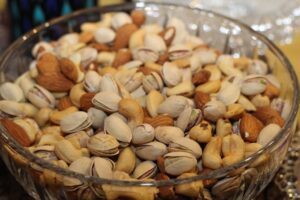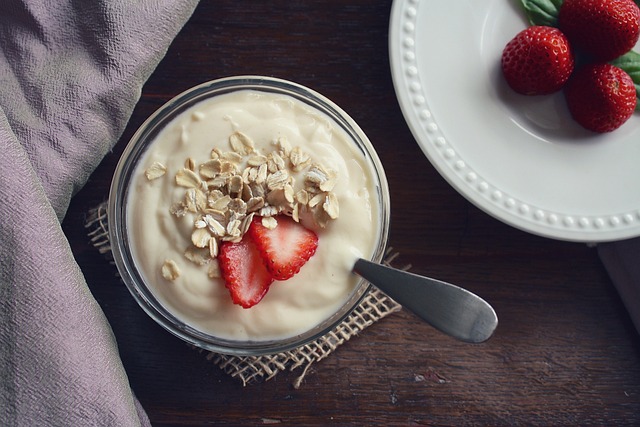Nourishing Your Mind: How Nutrition Influences Anxiety Levels
In a world that often feels overwhelming, our mental well-being has never been more crucial. While we know that exercise and mindfulness play significant roles in managing anxiety, have you considered the impact of what’s on your plate? It turns out, nutrition is not just about fueling our bodies; it’s also about nurturing our minds. Imagine trading those jittery moments for calm clarity simply by adjusting your diet! Join us as we delve into the fascinating connection between nutrition and anxiety levels—exploring how certain foods can either uplift or undermine your emotional balance. Get ready to unlock the secrets of nourishing your mind through mindful eating.
How Nutrition Affects Brain Function
 The brain relies on nutrients to function properly, and what you eat can either fuel your mind or leave it sluggish. Foods rich in vitamins, minerals, and healthy fats support brain health and can help balance your mood. For example, omega-3 fatty acids found in fatty fishlike salmon have been shown to reduce anxiety and improve cognitive function. On the flip side, a diet high in processed foods, sugar, and unhealthy fats can worsen anxiety symptoms by disrupting brain chemistry and increasing inflammation.
The brain relies on nutrients to function properly, and what you eat can either fuel your mind or leave it sluggish. Foods rich in vitamins, minerals, and healthy fats support brain health and can help balance your mood. For example, omega-3 fatty acids found in fatty fishlike salmon have been shown to reduce anxiety and improve cognitive function. On the flip side, a diet high in processed foods, sugar, and unhealthy fats can worsen anxiety symptoms by disrupting brain chemistry and increasing inflammation.
Blood Sugar Levels and Anxiety
Blood sugar levels play a significant role in anxiety. When you eat foods that cause your blood sugar to spike and crash, you can experience feelings of irritability, nervousness, and anxiety. A diet high in refined carbs and sugary foods can lead to blood sugar imbalances, which can make your body more prone to stress. To maintain stable blood sugar levels, it’s important to eat balanced meals with complex carbohydrates, healthy fats, and protein. These foods release energy slowly and help keep your mood steady.

Gut Health and Its Impact on Anxiety
Did you know that your gut is often referred to as your “second brain”? That’s because it’s home to trillions of bacteria that play a crucial role in regulating your mood. A healthy gut microbiome can help reduce anxiety, while an imbalanced microbiome can make anxiety worse. The gut produces neurotransmitters like serotonin (the “feel-good” chemical), and an unhealthy gut can impair this production. Probiotic-rich foods like yogurt, kefir, and fermented vegetables can help restore balance to your gut and may improve your anxiety levels.
The Role of Magnesium in Reducing Anxiety
Magnesium is a mineral that’s often referred to as nature’s relaxant. It has a calming effect on the nervous system and is essential for regulating mood. Low magnesium levels have been linked to increased anxiety and stress. Magnesium helps to balance neurotransmitters and regulate cortisol, the hormone responsible for stress. Foods like leafy greens, nuts, seeds, and whole grains are excellent sources of magnesium. Including more of these foods in your diet can help reduce anxiety and promote a sense of calm.
Caffeine and Anxiety: A Cautious Relationship
Caffeine is a double-edged sword when it comes to anxiety. While it can provide a temporary energy boost, it can also make anxiety worse in some people. Caffeine stimulates the production of adrenaline, which can trigger the body’s “fight or flight” response, leading to feelings of nervousness and jitteriness. If you’re already prone to anxiety, it’s a good idea to limit your caffeine intake or switch to lower-caffeine options like herbal teas. Listening to your body and finding the right balance is key to managing anxiety.
The Power of Hydration for Mental Clarity
Staying hydrated is important for both your physical and mental health. Dehydration can affect your brain’s ability to concentrate, making it harder to cope with stress and anxiety. Even mild dehydration can lead to irritability, fatigue, and poor mood. Drinking enough water throughout the day supports cognitive function and helps your body manage stress more effectively. Aim to drink at least eight glasses of water daily, and consider adding hydrating foods like cucumbers, watermelon, and oranges to your meals.

Foods That Can Help Calm Your Nerves
Certain foods are known for their calming properties and can help you manage anxiety more effectively. Herbal teas like chamomile and lavender have been shown to promote relaxation and reduce stress. Foods rich in antioxidants, such as berries and dark chocolate, can help reduce inflammation in the body, which may ease anxiety. Additionally, complex carbs like whole grains and sweet potatoes can stimulate the production of serotonin, helping you feel more relaxed and content.
The connection between nutrition and anxiety is clear: what you eat can directly affect how you feel. By focusing on a balanced, nutrient-dense diet that supports …

